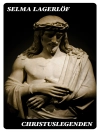Dionysius the Areopagite’s ‘The Collected Works’ serves as a profound exploration of Christian theology through the lens of Neoplatonism. Written in the late 5th to early 6th century, this collection encompasses seminal texts including ‘The Divine Names’ and ‘The Mystical Theology, ‘ which intricately weave the philosophical tenets of metaphysics and the nature of the divine into a framework of Christian mysticism. Dionysius employs a dense, symbolic literary style that invites readers into a contemplative engagement with the divine, while situating his work amid the rich currents of early Christian thought and later medieval theology, profoundly influencing scholars and mystics across centuries. Dionysius, a figure shrouded in both history and legend, is often identified as a convert of Saint Paul, a connection that infuses his writings with a sense of apostolic authority. His work reflects a deep engagement with philosophical traditions, particularly that of Plotinus, yet he endeavors to recontextualize these ideas within a Christian milieu. This synthesis not only highlights his intellectual rigor but also embodies the spiritual aspirations of an era striving for harmony between faith and reason. This collection is essential reading for anyone interested in the intersections of philosophy and theology. Ideal for scholars, theologians, and lay readers alike, ‘The Collected Works’ invites a transformative journey into the heart of the divine, offering insights that resonate across theological discourse and contemporary spiritual practice.
关于作者
Dionysius the Areopagite, a figure enveloped in mystery and pseudonymity, is traditionally associated with the Athenian judge converted by Saint Paul the Apostle, as recounted in Acts 17:34. However, scholarly consensus contends that the eponymous writings were likely composed by an unknown Christian Neoplatonist in late 5th to early 6th century CE. The authorship of ‘The Collected Works, ‘ which encompasses ‘The Divine Names, ‘ ‘Mystical Theology, ‘ ‘The Celestial Hierarchy, ‘ and ‘The Ecclesiastical Hierarchy, ‘ is often ascribed to Dionysius, yet their true historical source remains elusive (Luibheid & Rorem, Pseudo-Dionysius: The Complete Works, 1987). The Dionysian corpus harmonizes Christian theology with Neoplatonic philosophy, positing a systematic framework for the contemplation of the ineffable God through a structured hierarchy of being and a path of mystical ascent. Dionysius is credited with introducing the term ‘mystical theology’ and exerted profound influence upon both Eastern Orthodox and Western Christian mystical traditions (Pelikan, The Christian Tradition: A History of the Development of Doctrine, 1971). Particularly, his apophatic theological approach, which emphasizes what cannot be said about the divine, remains a cornerstone of Christian mysticism and has inspired a multitude of theological discourses into the medieval period and beyond (Mc Ginn, The Foundations of Mysticism, 1991). Despite uncertainties surrounding his identity, Dionysius the Areopagite has attained a pivotal role in the history of Christian thought.












